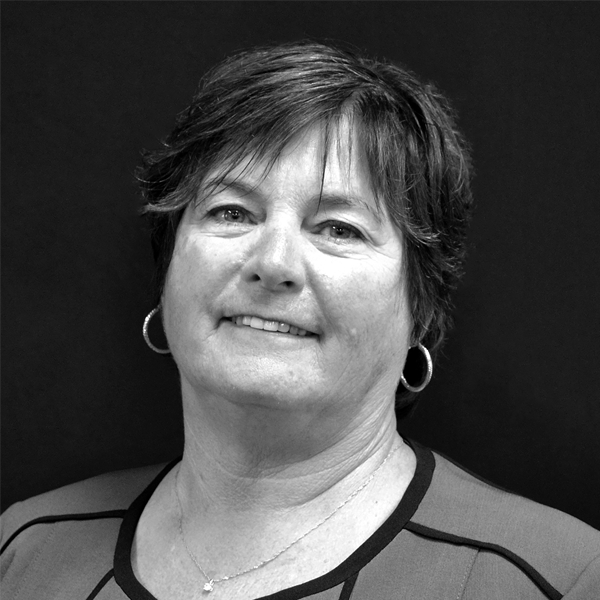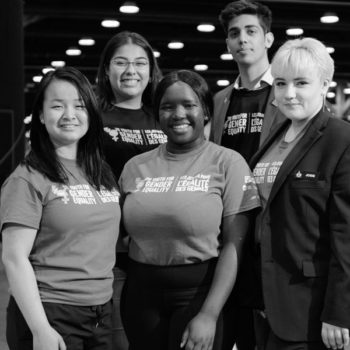Morse Code
“Never doubt that a small group of thoughtful, committed, citizens can change the world. Indeed, it is the only thing that ever has.”
Margaret Mead
To the casual observer, or even an experienced one, the UN’s Sustainable Development Goals (SDGs) are daunting. The 17 Goals and the multitude of targets accompanying them appear overwhelming when one considers the enormity of the tasks that need to be tackled in order to achieve them. Already four years removed from their adoption, progress often seems slow or even non-existent. A glance at the headlines can make the whole endeavor seem unattainable. But then something happens that not only surprises, but leads to great optimism, and the realization that maybe we can do this.
Greta Thunberg’s climate strikes have grabbed the world’s collective attention. The Swedish girl who turned her frustration with political inaction into a global movement has inspired millions around the world. That a 16-year-old became the face for addressing climate change, the challenge of our times, while most of our political leaders sat on their hands, should send a clear message to all of us. This is what change looks like, and we had better get on board. But for me, it doesn’t stop there.
To see a girl leading on this scale shows us all what is possible when we provide our girls with a voice, a belief in their potential, and especially a quality education. Unfortunately, for women and girls living in the world’s poorest nations, the effects of a warming climate will hit them the hardest. One way we can change this reality is to see that more girls receive a quality education, and those efforts must begin here at home.
This is why the CTF/FCE made gender equity a priority for the 2019 Federal Elections as part of our “I Teach, I Vote” campaign. Our research clearly shows that even in Canada the work to achieve gender equity is far from complete. Looking beyond the election, we have been working to ensure that equity is sustainable.
The CTF/FCE partnered with Plan International Canada on Youth for Gender Equality, an initiative that brought together youth from across Canada to create the first-ever Youth-Led Roadmap for Gender Equality: A Plan to Achieve Sustainable Development Goal 5 in Canada. We also launched the FemLeadFem web resource page that provides people who identify as women, and who are seeking elected positions within their teacher unions, with the tools and advice they can tap into to be successful.
As an affiliate of Education International (EI), the CTF/FCE knows the tireless work that went into guaranteeing SDG4 to “Ensure inclusive and equitable quality education and promote lifelong learning opportunities for all.” Without it, the Goals would not have reflected the basic foundation needed to face the future, nor would many of the other Goals have any chance at succeeding.
According to the UN, 131 million girls around the world are out of school. This problem alone will make it virtually impossible to achieve gender equity, eliminate poverty and hunger, improve health, or reverse climate change. Quite simply, the world needs to empower its girls and women, and classrooms are key spaces for all who identify as girls and women to find their voice and their power, to use it, as Women Deliver urges, for change.
This is why the CTF/FCE is proud to be launching the Simameni Project, which is aimed at improving girls’ education in Uganda. Through a partnership with the Uganda National Teachers’ Union (UNATU), the Simameni Project, which means ‘stand up’ in Swahili, strives to not only improve learning conditions for girls in Ugandan secondary schools, but also to increase access to, participation in, and completion of quality publicly funded public education in the country. The Canadian Government has committed a total of $1.9 million over five years to support the project.
Although Simameni is being coordinated by the CTF/FCE team in Ottawa, the work in Uganda is carried out by UNATU to engage the teaching profession, families, and communities to make education and schools better and safer for all girls.
Through initiatives like this, we are provided with a constant and needed reminder that change is possible, no matter how big or small. From Greta to a Ugandan girl who’s given the chance to learn in a safe and caring environment, we know that when we support our girls great progress can be made far beyond the classroom, village, or country. This is why, as Canadians with strong publicly funded public school systems, we must continue to lead at home and abroad to show the world what is possible when we unite for the common good.

Shelley L. Morse, President of the CTF/FCE


